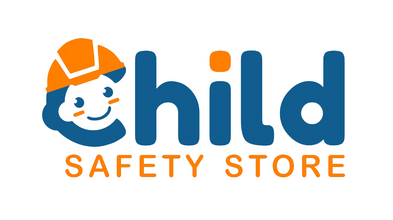
Head Injuries: Concussions in Children
Most children are curious, adventurous and, well, a little bit clumsy. Unfortunately, this combination of things can sometimes lead to concussions in children. Concussions are a fairly common injury, but they can also become quite dangerous.
When we’re talking about brain injuries, it is always worthwhile to be informed about how to recognize, prevent and treat the trauma. While concussions in children are usually mild, the affects of any brain injury can potentially be serious. No matter what, a potential concussion should never be ignored.
What is a Concussion?
Concussions are mild traumatic brain injuries, or “mild TBI,” that occur when someone experiences trauma to the head, such as forceful shaking or a heavy impact. This type of disruption can result in damaged brain cells. In a nutshell, a concussion is an injury that can effect the brain’s ability to function properly. This damage often lasts for just a few days, but can also cause permanent problems, depending on the severity of the injury.
How Do Concussions in Children Happen?
There can be many reasons for concussions in children to occur. For today, let’s take a look at a few common examples:
- Falling – Taking a fall is the biggest cause of traumatic brain injuries. In fact, it was the cause for 49 percent of TBI-related emergency room visits by children aged 0 to 17 years.
- Car Crashes – Car crashes are the second leading cause of all TBI-related hospitalizations. For this reason, the importance of a properly installed car seat for your children cannot be stressed enough.
- Sports – Sports are a common way many kids get their concussions. Be sure that your child is always wearing a properly fitted helmet – whether they’re bike riding, playing contact sports or exploring winter activities.
Remember that concussions in children can develop additional complications if your child goes back to sports before the injury is fully healed. Always rely on a doctor's guidance. When it comes to playing with a child's health, it's never worth the risk.
Signs of a Concussion in Children
Contrary to popular belief, a concussion can happen even if a person doesn't lose consciousness. Symptoms can include anything from a headache and nausea to blurred vision and slurred speech.
Other symptoms can include:
- confusion,
- dizziness,
- vomiting
- or not remembering what happened leading up to the injury.
If a child experiences any of these symptoms after a blow to the head or any serious impact, it is best to seek immediate medical attention.
Treating Concussions in Children
When you suspect concussions in children, your doctor will ask about the incident that caused the injury. They will likely also check the child’s memory, concentration, balance and reflexes.
If a mild TBI is diagnosed, the child should temporarily refrain from physical activities, especially sports that can result in head injury, until symptoms subside. They should return to normal activities, including school, physical sports, gradually.
As we mentioned above, it's critical to listen to a medical professional's advice. This is especially important because a follow-up injury such as another blow to the head, can have more severe and longer-lasting results than the initial injury.
When a child does return to activities, encourage them to take frequent breaks in order to measure symptoms. If symptoms reappear or worsen, the child should stop the activity and seek medical assistance.
